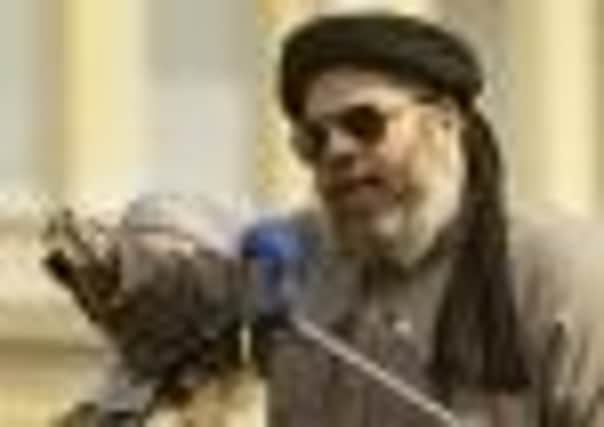Terror suspect Abu Hamza flown to US after radical cleric loses extradition fight


He and four other terror suspects were flown out from RAF Mildenhall in Suffolk on board two planes after Home Secretary Theresa May was given the go-ahead for their immediate removal from the UK.
Two High Court judges in London rejected an application by the 54-year-old former imam at Finsbury Park mosque in London to be given time to undergo a brain scan his lawyers said could show he was medically unfit to face trial.
Advertisement
Hide AdAdvertisement
Hide AdSir John Thomas, sitting with Mr Justice Ouseley, also rejected challenges by Babar Ahmad, Syed Ahsan, Khaled Al-Fawwaz and Adel Abdul Bary. Dismissing all the cases, Sir John said: “It follows that their extradition to the United States of America may proceed immediately.”
A Home Office spokesman said: “We welcome the decision on Abu Hamza and others.”
Hours later, they were on their way to the US.
All five cases returned to the High Court after the European Court of Human Rights refused to intervene and stop the Home Secretary extraditing them. Between 1999 and 2006, the men were indicted on various terrorism charges in America.
Hamza, who was jailed in the UK for seven years for soliciting murder and inciting racial hatred in 2006, first faced an extradition request from the Americans in 2004. He has been charged with 11 counts of criminal conduct related to the taking of 16 hostages in Yemen in 1998, advocating violent jihad in Afghanistan in 2001 and conspiring to establish a jihad training camp in Bly, Oregon, between June 2000 and December 2001.
Ahmad, a computer expert from south London, and Ahsan are accused of offences including using a website to provide support to terrorists and conspiracy to kill, kidnap, maim or injure persons or damage property in a foreign country.
They wanted their removal stopped so they could challenge a decision by the Director of Public Prosecutions not to allow British businessman Karl Watkin, a campaigner against the UK’s extradition arrangements with the US, to bring prosecutions against them in the UK.
Bary and Al-Fawwaz were indicted – with Osama bin Laden and 20 others – for their alleged involvement in, or support for, the bombing of US embassies in Nairobi and Dar es Salaam in 1998. Al-Fawwaz faces more than 269 counts of murder.
Sir John said there was an “overwhelming public interest in the proper functioning of the extradition arrangements and the honouring of extradition treaties”.
Advertisement
Hide AdAdvertisement
Hide AdHe added: “It is also in the interest of justice that those accused of very serious crimes, as each of these claimants is in these proceedings, are tried as quickly as possible as is consistent with the interests of justice.
“It is unacceptable that extradition proceedings should take more than a relatively short time, to be measured in months not years. It is not just to anyone that proceedings such as these should last between 14 and eight years.”
He added: “As was made clear by Mr [James] Eadie, QC, on behalf of the Home Secretary at the conclusion of the second day of the hearing, if we refuse permission or refuse the stays, as these applications are all in criminal matters, there is no appeal from our decision and the Home Secretary will be free to make arrangements for the extradition of each of the claimants.”